Duterte's unorthodox style shows pragmatic diplomacy
Updated: 2016-10-27 07:27
(China Daily)
|
||||||||
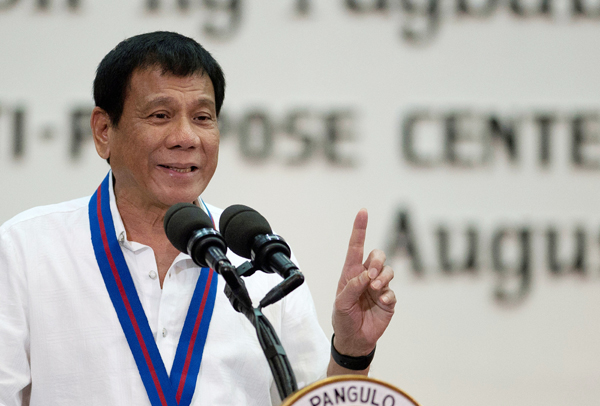 |
|
Philippine President Rodrigo Duterte gestures while delivering a speech during the 115th Police Service Anniversary at the Philippine National Police (PNP) headquarters in Quezon city, metro Manila, Philippines August 17, 2016. [Photo/VCG] |
For many accustomed to orthodox statesmanship, Philippine President Rodrigo Duterte is proving to be perplexingly, if not annoyingly, offbeat.
If the alleged extra-judicial approach of his anti-drug campaign has driven a wedge between himself and some traditional Philippine allies, most noticeably the United States, his foreign policy statements have left Washington nonplussed, trying to lip-read the intentions behind his explosive and often contradictory remarks.
To such an extent that Philippine Foreign Minister Perfecto Yasay has reportedly just assured Washington of Manila's continuous commitment to the Philippine-US alliance following Duterte's words in Beijing to "separate" from the latter.
During his ongoing visit to Japan, Duterte will not be able to avoid explaining to his hosts his just-concluded state visit to China, a move decried as "cozying up" to Beijing by both Tokyo and Washington. Both wanted him to carry to Beijing his domestic tough-guy public persona and focus on the South China Sea issue and the recent arbitration that went in Manila's favor.
But while the Philippine leader's informal, unorthodox style may be hard to navigate, particularly linguistically, it would be safe to bet that Duterte is a shrewd pragmatist.
Despite Japan's high expectations that the Philippines remains unyielding against China on the South China Sea issue, Duterte is highlighting the business aspect of relations in Tokyo.
Much as he did in Beijing.
And in spite of the harsh words Duterte has uttered, all the way from Manila to Beijing to Tokyo, the Philippines is not cutting off its military or economic partnership with the US, as Yasay has just assured Washington.
What Duterte has been doing via his sensational utterances is sending the simple message that he is "not a lapdog of any country", and his country is not "a dog on a leash". He wants diplomatic independence, because that is in his country's best interests.
Tokyo and Washington do not have to worry too much about Duterte's "realignment" statements, because he is only seeking to maximize his country's gains from the turbulence.
While confronting Beijing pleases Washington and Tokyo, it costs the Philippines dearly at least economically.
Remember one remark that Duterte has not changed is war brings no benefit.
At least at this point, neither Tokyo nor Washington seems ready to deliver to Manila what Beijing has come up with.
Duterte's China visit has offered proof that shelving the disputes and concentrating on mutually beneficial development cooperation is the most rewarding choice.
- Russian, German FMs discuss Syrian situation
- Workers wield sledgehammers to tear down Calais 'Jungle'
- Panda-themed contest held to mark Belgium-China ties
- Morocco highly guarded to secure upcoming COP22
- Lavrov, Kerry discuss Syrian situation
- Turkish troops kill 17 IS militants since Mosul operation: FM
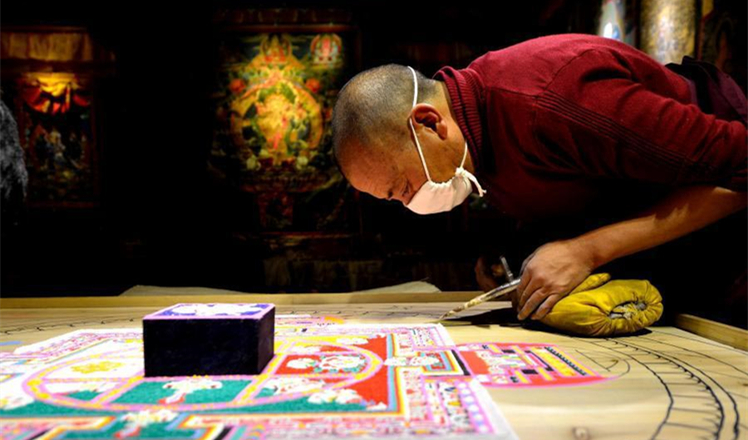
 Tibet mandala: The world in a grain of sand
Tibet mandala: The world in a grain of sand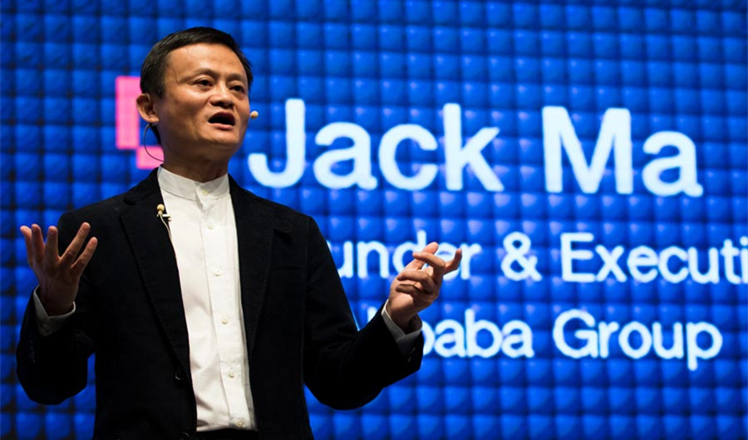
 Top 10 Chinese tycoons in IT industry
Top 10 Chinese tycoons in IT industry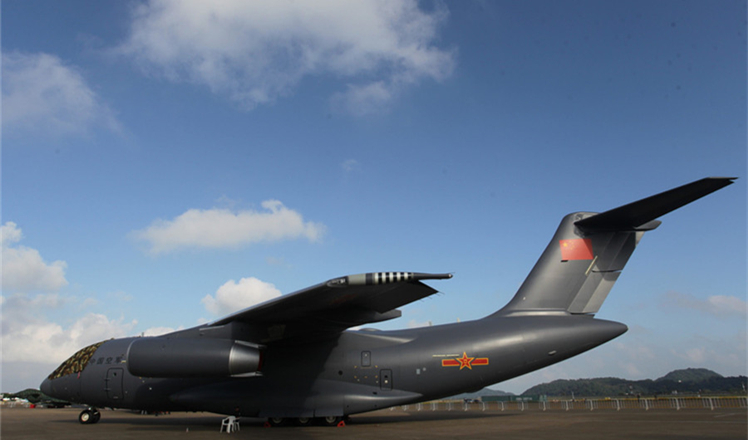
 Planes ready to take off at Airshow China
Planes ready to take off at Airshow China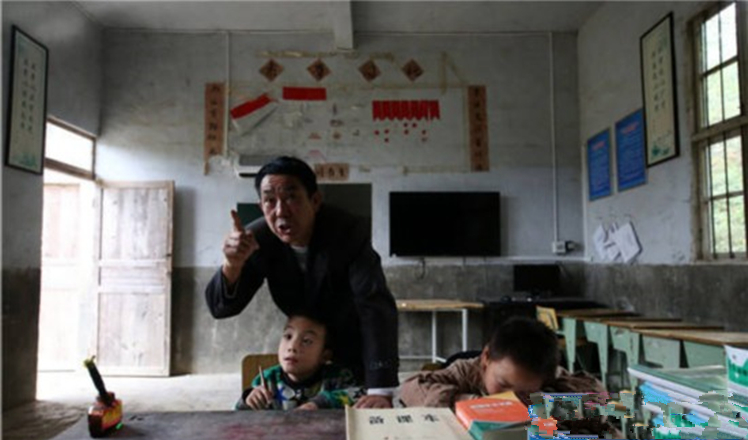
 Teacher's spirit keeps village school open
Teacher's spirit keeps village school open
 A sweet wedding worth waiting for
A sweet wedding worth waiting for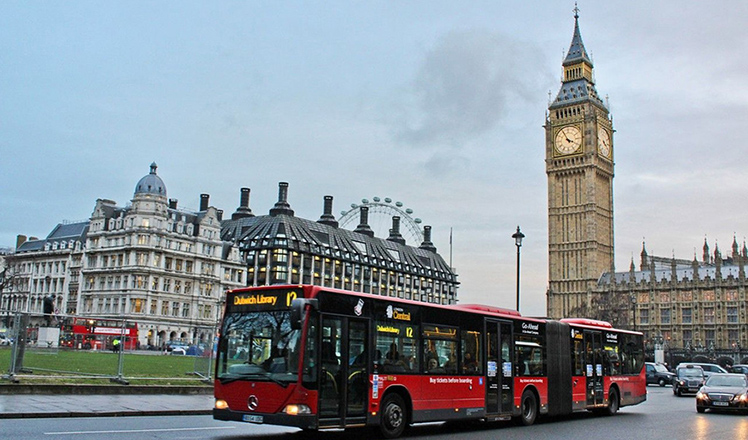
 Top 5 property destinations for Chinese investors
Top 5 property destinations for Chinese investors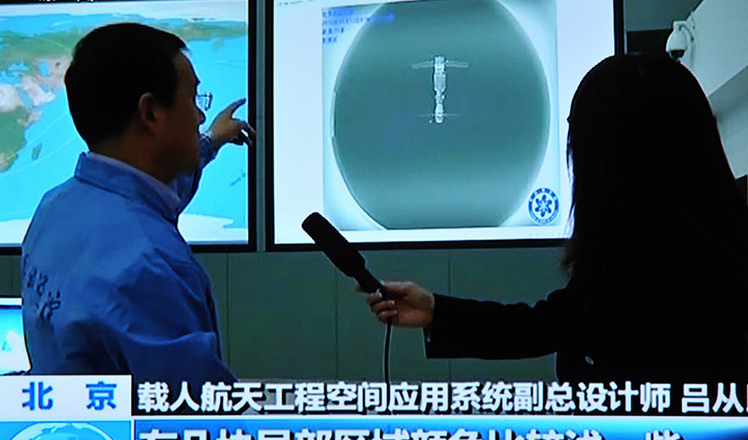
 Accompanying satellite sends back images of Tiangong II, Shenzhou XI
Accompanying satellite sends back images of Tiangong II, Shenzhou XI
 Dare you jump
Dare you jump
Most Viewed
Editor's Picks

|

|

|

|

|

|
Today's Top News
'Zero Hunger Run' held in Rome
Trump outlines anti-terror plan, proposing extreme vetting for immigrants
Phelps puts spotlight on cupping
US launches airstrikes against IS targets in Libya's Sirte
Ministry slams US-Korean THAAD deployment
Two police officers shot at protest in Dallas
Abe's blame game reveals his policies failing to get results
Ending wildlife trafficking must be policy priority in Asia
US Weekly

|

|







